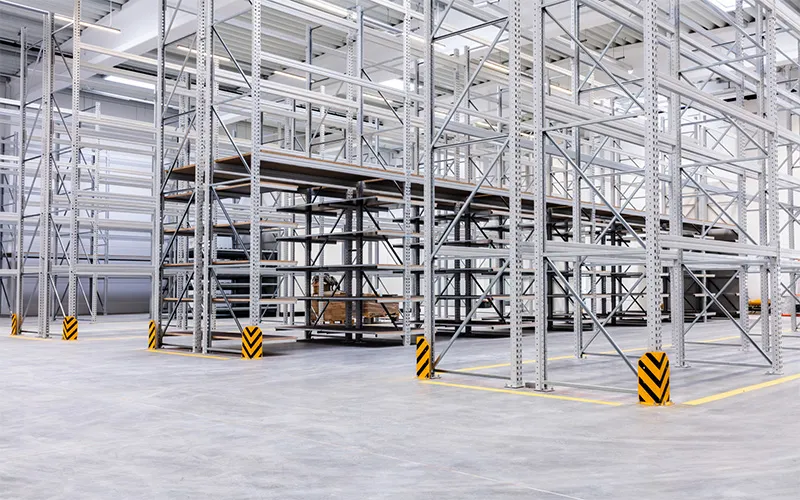Why Storage Matters
Whether at home, in the office, or in large industrial settings, storage is a constant concern. As items accumulate, the need for an efficient system to keep everything organized becomes essential. From tools and equipment to household supplies and business inventory, having the right storage not only keeps things tidy but also saves time and ensures safety.
In many cases, traditional shelving and lightweight units simply cannot handle the demands of heavy or bulky items. This is where stronger, more reliable systems come into play.
Understanding the Need for Strength
Not all storage systems are created equal. While lightweight shelving can be useful for books, clothing, or kitchen supplies, it does not offer the structural integrity required for larger or heavier objects. For example, storing construction tools, automotive parts, or bulk product shipments requires a system that can hold significant weight without buckling or becoming unstable.
Having a strong storage system also reduces the risk of accidents. Weak shelves may collapse under too much weight, potentially causing injury or damage. Investing in a solid, well-built unit ensures both safety and long-term efficiency.
Different Types of Storage Units
There are many types of storage systems available, each serving a unique purpose depending on the setting:
Wooden Shelving
Wooden shelving is common in homes and offices for light to medium loads. It provides an attractive look but may not be practical for heavy industrial use.
Plastic Units
Plastic shelving is affordable, easy to assemble, and resistant to moisture. It works well for lighter household or outdoor items, but it has limits when it comes to heavy storage needs.
Metal Shelving
Metal shelving, particularly steel-based designs, provides the strength needed for heavier loads. This type is widely used in garages, warehouses, and industrial facilities. It offers a balance between durability and versatility, making it a popular choice for demanding environments.
Specialized Racks
Some storage systems are designed specifically for certain tasks. For instance, pallet racks, cantilever racks, and mobile shelving units cater to different industries and item types. These are often engineered to hold extremely heavy loads while remaining stable and easy to access.
The Role of a Heavy Duty Rack
When strength and durability are top priorities, a heavy duty rack is the ideal solution. Built with reinforced steel and designed to hold significant weight, these racks are suitable for demanding storage environments.
Unlike lighter shelving systems, a heavy duty rack is engineered for stability and safety. Its structure allows for the storage of bulky tools, large boxes, machinery parts, or even pallets of goods. This makes it highly valuable in warehouses, workshops, garages, and industrial facilities.
Key Benefits of Heavy Duty Racks
Superior Load Capacity
The primary advantage of a heavy duty rack is its ability to hold far greater weight compared to traditional shelves. This prevents sagging or collapse, ensuring that items are stored securely.
Durability and Longevity
These racks are designed for constant use in tough environments. With sturdy materials and reinforced frames, they withstand heavy wear and tear, making them a long-term investment.
Improved Organization
By providing reliable support for large or heavy items, heavy duty racks help create a more organized space. Instead of piling things on the floor, items can be arranged neatly, making them easier to locate and access.
Safety in the Workplace
In environments where safety is critical, using proper storage systems can reduce the risk of accidents. Heavy duty racks are built to remain stable, even when supporting maximum loads.
Versatility in Use
From warehouses storing pallets of goods to garages holding automotive parts, heavy duty racks fit a wide range of applications. Adjustable designs also allow customization for different types of items.
Common Applications of Heavy Duty Racks
Industrial Warehouses
Warehouses rely on strong racks to store heavy shipments, raw materials, and bulk goods. Heavy duty racks provide the backbone of efficient warehouse management.
Manufacturing Facilities
In manufacturing, tools, machinery parts, and raw materials require strong and reliable storage. Heavy duty racks ensure that these items are kept secure and accessible.
Automotive and Workshop Storage
Garages and workshops often deal with heavy equipment and spare parts. A heavy duty rack provides the strength needed to hold these items without risk of damage.
Commercial Use
Retail backrooms, storage facilities, and distribution centers also benefit from these racks. They allow businesses to maximize storage space while keeping inventory organized and safe.
Tips for Choosing the Right Heavy Duty Rack
When selecting a heavy duty rack, consider the maximum weight capacity needed for your space. It is also important to think about the available floor space and height, as taller racks can maximize vertical storage. Adjustable shelving is ideal for spaces where the types of stored items change frequently.
For safety, always ensure the rack is properly assembled and placed on a level surface. Securing racks to walls or floors may be necessary in environments with high activity or seismic concerns.
Conclusion
Strong storage solutions are essential in both personal and professional environments. While wooden, plastic, and lighter shelving units serve certain purposes, they cannot match the strength and reliability of heavy duty racks. Built to handle substantial weight while ensuring safety and organization, they are a practical investment for warehouses, workshops, garages, and beyond. By choosing the right heavy duty rack, you can create a safer, more efficient, and better-organized space.
